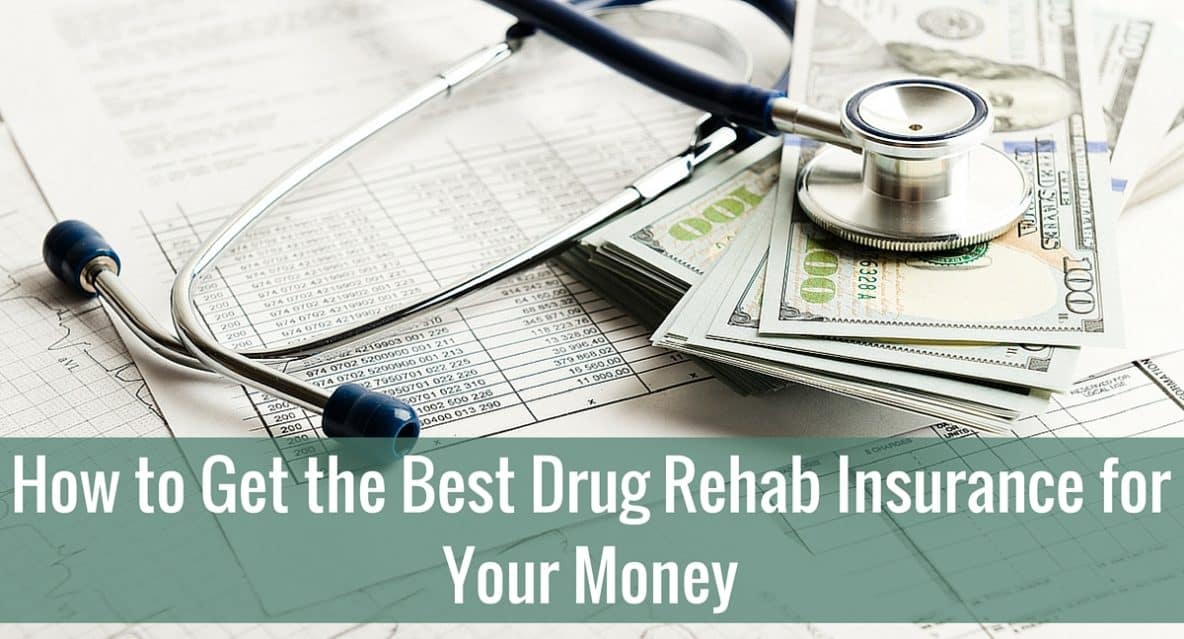
Let’s be honest:Drug and alcohol rehabis no small investment. Luckily, good insurance can go a long way in covering those costs. But finding the right insurance that provides the coverage you need (for thepriceyou need!) can be a challenge in itself.
So today, we’re covering the best types of rehab insurance to get you into the best drug rehab. Here’s what to look for in insurance for drug rehab.
What Rehab Costs Will You Need Insurance to Cover?
There are a number of different costs associated with drug rehab. Every plan is different and may cover only a portion of these costs. Here we will discuss how you how to get insurance to pay for rehab and all about rehab insurance coverage.
Detox
Before you begin treatment, you’ll need to detox your body from the substance. Many substances have extremely dangerous withdrawal periods, so this is often done in a hospital setting.
Treatment
Treatment comes in a variety of forms, from outpatient care where you travel to the doctor a few days each week, to inpatient programs where you live in a treatment center. The costs can vary from $1,000 to $25,000+ depending on the level of care you receive. Most plans cover outpatient treatment but handle inpatient programs or hospitalization separately.
Medication
During detox and treatment, you may need one or several subscription medications to help fight withdrawal symptoms and drug cravings. When it comes to insurance, receiving these types of medications is often referred to as “pharmacotherapy.” Not all plans will cover medications, but coverage is ideal.
What Type of Insurance Should You Get?
Making sure you get the right insurance can ensure you get into the best drug rehab. Insurance can be broken down into two main categories: private insurance and public insurance. Private insurance is insurance that you purchase on your own, or through your workplace. You are responsible for all or some of the cost. Public insurance is provided by the government and may be partially or completely covered by government funds.
As far as coverage, most plans of both types have the same basic “essential health benefits” as outlined by the Affordable Care Act. These benefits include mental health and substance disorder treatment, as well as prescription drugs.
Below is an overview of the main types of health insurance, and the general pros and cons of each:
Private Insurance
Private insurance can be bought individually, or through a group plan, such as what you’d enroll in through your employer. It generally more expensive than public health care but often has the best rehab insurance coverage for the price.
- How Much Does it Cover?According to the Affordable Care Act, all individual and small group plans must cover the essential health benefits (see above). However, “grandfathered health plans,” insurance plans created before March 23, 2010, may not be required to. Grandfathered health plans are not very common, but can sometimes be found in group insurance plans.
Many insurance plans coordinate with certain health care providers within a network. This setup is called managed care. There arethree main types of managed care plans:
- Health maintenance organizations (HMOs)generally only cover care from in-network providers. Because of this, they also tend to be more affordable.
- Preferred provider organizations (PPOs)focus on in-network providers, but may still cover some costs from out-of-network providers. If you go with an out-of-network health care provider, you may need to pay upfront and seek reimbursement from your insurance company afterward.
- Point of servicemeans you can go with an HMO or PPO every time you need care. This is the most flexible plan.
Public Insurance: Medicare
Medicare is government-funded insurance for those aged 65 or older, as well as for some younger people with disabilities.The cost varies by planbut is generally more affordable than other insurance options.
- How Much Does it Cover?Coverage is divided into parts:Part Acovers inpatient care,Part Bcovers outpatient care, andPart Dcovers prescription medication. Part D is optional, so you may choose not to have pharmacotherapy coverage.
Public Insurance: Medicaid
Medicaid is government-funded insurance for low-income households.
- How Much Does it Cover?According toHHS.gov, Medicaid must cover the same essential health benefits required by the Affordable Care Act. However, Medicaid varies by state, so the type and amount of coverage may vary.
At The Recovery Village, You’re covered
If you are looking for insurance covered rehab facilities please contact us to go over your options here at The Recovery Village®. We accept most major insurance plans and will work directly with your provider to make sure you’re getting the best coverage possible. Learn more about our admissions processhere.














